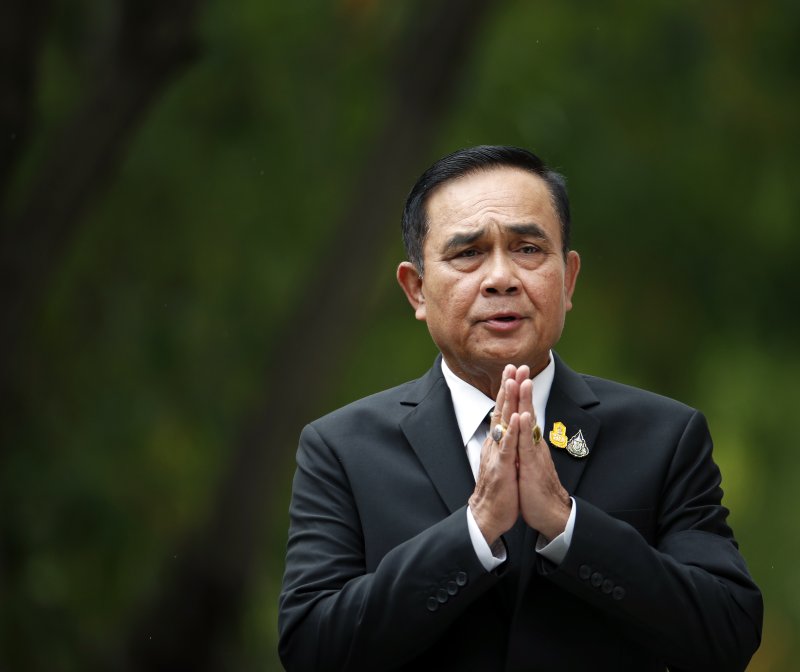Thai junta chief Prayut Chan-o-cha returns to power to be the new prime minister after winning the parliamentary vote. Photo by Rungro Yongrit/EPA-EFE
June 6 (UPI) -- Both lower and upper houses of Thailand's government elected former leader of the country's military junta Prayut Chan-ocha as the country's 29th prime minister.
The former military general led a military coup in the country five years previous and installed himself as its leader.
But he was chosen by parliament Wednesday by a vote of 500 to the main opposition Future Forward party candidate Thanathorn Juangroongruangkit's 244, well surpassing the 375 votes needed following 11 hours of debate. A total of 747 members of parliament casted votes in the election.
Only three members abstained from voting: Chuan Leekpia, the Speaker of the House, who reserved the right as his duty and privilege, one member who was sick and another who was a no-show, The Phuket News reported.
Prayut, 65, was nominated by the Palang Pracharath Party and prior to the vote had secured a coalition of 19 parties, gaining him a Lower House majority of 254 seats while a last-minute addition of the 53-seat Democrat Party pushed him to victory.
However, following years of military rule, scepticism is high that democracy has been ushered in with this election.
"The election doesn't mean we are returning to a democracy," Titipol Phakdeewanich, dean of the faculty of political science at Thailand's Ubon Ratchathani University, told Financial Times. "It means a consolidation of military power in Thai politics."
There have been concerns by activists that a Prayut government could see the continuation or repressive tactics experienced under his military rule.
Human Rights International Wednesday called on Thai authorities to "urgently and impartially" investigate assaults on three pro-democracy activists since May.
"Violence by thugs against pro-democracy activists has become a dangerous new trend in Thailand," HRI's Asia Director Brad Adams said in a statement. "The failure of Thai authorities to seriously investigate these assaults both encourages future attacks and suggest a possible role by officials."















